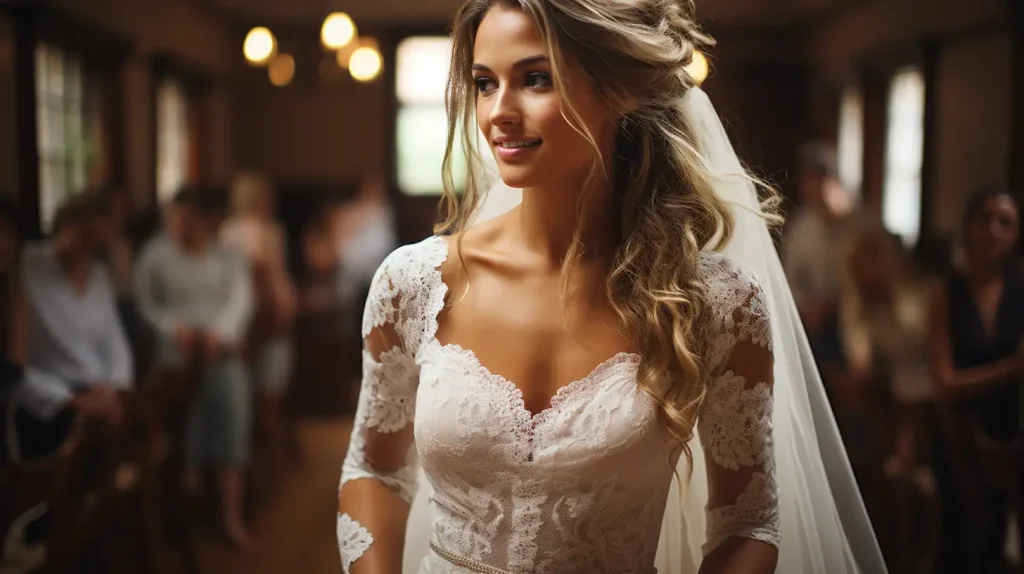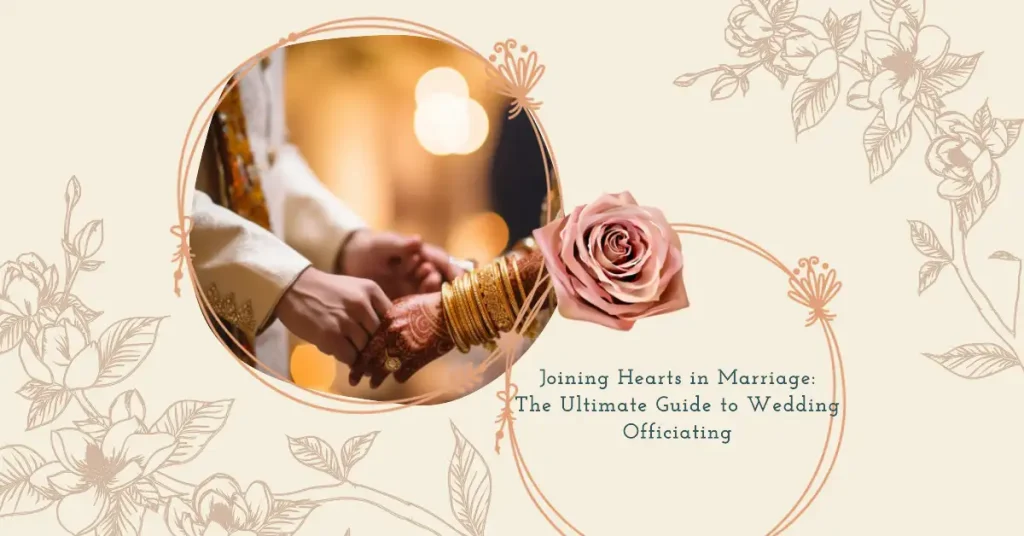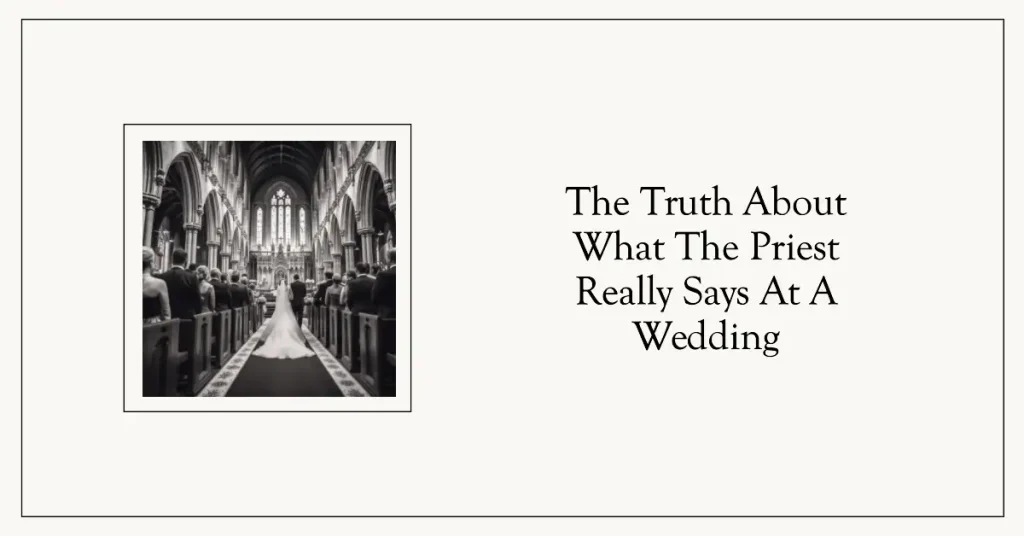Table of Contents
Choosing the right time for a wedding ceremony can have a significant impact on the overall tone and success of the event. While the time of day may seem like a simple decision, there are several factors to consider before making the final choice. From the season to the venue, each aspect can help determine the ideal start time for the ceremony.
Fortunately, couples have a variety of options when it comes to setting the start time for their wedding ceremony. Whether they choose a morning, afternoon, or evening start time, there are pros and cons to consider for each option. Additionally, consulting with wedding professionals and adjusting the start time for special considerations can help ensure a memorable and stress-free event.
Key Takeaways
- Choosing the right time for a wedding ceremony is important for setting the overall atmosphere of the event.
- Factors to consider include the season, venue, and cultural/religious traditions.
- Morning, afternoon, and evening start times all have their own pros and cons to consider.
- Consulting with wedding professionals is recommended for finalizing the start time.
- Special considerations, such as outdoor ceremonies and destination weddings, may require adjustments to the typical start time.
Factors to Consider When Determining the Start Time
Choosing the ideal time for a wedding ceremony can be challenging, as there are several factors that can impact the timing. Here are some key considerations when determining the start time:
- Carter, Lisa (Author)
- English (Publication Language)
- 107 Pages - 04/06/2024 (Publication Date) - Independently published (Publisher)
| Factor | Description |
|---|---|
| Season | The time of year and weather conditions can affect the comfort of the couple and guests. It’s essential to consider temperature, humidity, and daylight hours to choose the optimal time. |
| Venue | The location of the ceremony can influence the timing. If it’s an indoor venue with controlled lighting, the couple might have more flexibility than in an outdoor venue with natural lighting. |
| Cultural or Religious Traditions | Many cultures and religions have specific customs that dictate the timing of the wedding ceremony. It’s important to consider these traditions and work with the appropriate parties to ensure they are honored. |
In addition to these factors, it’s essential to think about the logistics of the day and the couple’s preferences. For instance, if the couple wants to have a reception immediately following the ceremony, they may have limited options for timing. It’s also crucial to consider the convenience of the guests, especially those traveling from out of town.
Morning Ceremonies: Pros and Cons
Starting a wedding ceremony in the morning has both advantages and disadvantages that couples should consider before making a decision.
Advantages:
| Pros: | Details: |
|---|---|
| Cooler Temperatures | Starting early in the morning can avoid the heat of the day and make the outdoor ceremony more comfortable for the couple and guests |
| Better Lighting | Morning light can be softer and more flattering for photography |
| Daytime Receptions | A morning ceremony can allow for a daytime reception that can be less expensive than an evening affair |
Disadvantages:
| Cons: | Details: |
|---|---|
| Early Wake-Up Times | Starting the wedding early means the couple and guests may need to wake up very early in the morning to get ready |
| Limited Availability | Some vendors, such as hair and makeup artists, may charge an additional fee for early morning appointments |
Afternoon Ceremonies: Pros and Cons
Afternoon ceremonies are a popular choice for couples who want to make the most of natural light and enjoy a leisurely event. However, there are some considerations to keep in mind when choosing an afternoon start time.
One of the main advantages of an afternoon ceremony is the availability of natural light, which can make for stunning photographs and create a warm and inviting atmosphere. Additionally, an afternoon start time allows for more relaxed preparation in the morning and can lead to a more laid-back vibe throughout the day.
However, one potential downside to an afternoon ceremony is the need to plan for both the ceremony and reception in one day, as guests may need to travel from the ceremony venue to the reception location. This can lead to a more rushed schedule and potentially less time for guests to enjoy the reception.
Another consideration is the potential for conflicts with other events that may be happening in the area. If the ceremony is scheduled during a busy time of year or in a popular location, traffic and parking may be more difficult and could cause delays or logistical issues.
Ultimately, couples should consider their specific preferences and the unique aspects of their wedding when deciding on an afternoon ceremony start time.
Evening Ceremonies: Pros and Cons
There’s no denying the romance that comes with an evening wedding ceremony, but there are also a few downsides to consider. Here are some pros and cons of starting your wedding ceremony in the evening:
The Pros:
- Creating a romantic atmosphere: The dimmed lighting and candles can create a magical ambiance.
- Flexible for guests: Evening ceremonies allow guests time to travel and get ready beforehand.
- More time for preparation: An evening ceremony allows you more time for preparation earlier in the day.
The Cons:
- Potential lighting challenges: Depending on the time of year, it may be dark outside and artificial lighting may be required.
- Coordination with other vendors: Planning an evening ceremony also requires coordinating with other vendors, such as the catering staff and DJ, who may have limits on their availability.
- Limited time for reception: An evening ceremony may mean a shorter reception if the venue has a hard stop time due to noise restrictions or other events following your wedding.
“An evening ceremony can be incredibly romantic and set the tone for a memorable celebration, but it’s important to consider the potential lighting challenges and limitations on the timing of the reception”
Popular Wedding Ceremony Start Times
When it comes to selecting a start time for their wedding ceremony, many couples tend to opt for one of the most popular choices. Here are some of the most common start times for wedding ceremonies:
| 11:00 am | For couples who want a morning ceremony, but don’t want to start too early, 11:00 am can be an ideal choice. This timing allows for a relaxed morning schedule and a lunchtime reception. |
|---|---|
| 2:00 pm | For couples who prefer to have their ceremony in the afternoon, 2:00 pm can be a great option. This timing provides ample opportunity for natural light during the ceremony and allows for a relaxed pace leading up to the reception. |
| 5:00 pm | Starting the ceremony at 5:00 pm can create a romantic ambiance, with the sunset providing the perfect backdrop. It also allows for a late afternoon/evening reception and plenty of time for pre-ceremony preparations. |
| 7:00 pm | For couples who want a true evening wedding, starting the ceremony at 7:00 pm can be a great option. This timing allows for a candlelit ceremony and a late evening reception, while also giving guests plenty of time to get ready for the event. |
It’s worth noting that the specific timing of your wedding ceremony will ultimately depend on a variety of factors, including your personal preferences, the venue’s availability, and any cultural or religious traditions that you wish to incorporate. While these popular start times offer a general guideline, do not feel pressured to conform to them if they do not work for your specific wedding vision.
Tips for Choosing the Right Start Time
Choosing the perfect start time for a wedding ceremony involves careful consideration of many factors. Here are some tips to keep in mind when making this important decision:
- Consider the desired atmosphere: Think about the mood you want to create for your ceremony. Do you envision a bright and sunny daytime event, a romantic evening affair, or something in between?
- Factor in guest convenience: Be mindful of the convenience of your guests, especially if you have a large number of out-of-town guests or elderly relatives. Consider travel times, meal times, and other factors that may affect their comfort.
- Coordinate with other vendors: If you have hired other vendors for your wedding, such as a DJ or photographer, make sure to coordinate with them when selecting the start time for your ceremony.
- Be aware of lighting considerations: Lighting can greatly affect the overall ambiance of your ceremony. Consider the availability and quality of natural light at different times of day, as well as the availability of artificial lighting options.
- Keep the season in mind: Different seasons may require different start times, especially if you are having an outdoor ceremony. Consider factors such as temperature, daylight hours, and potential weather patterns.
- Think about the flow of events: Consider the length of your ceremony and how it will fit into the overall flow of your wedding day. If you are having a reception immediately following the ceremony, factor in time for photos, travel, and other logistics.
By keeping these tips in mind and consulting with your wedding professionals, you can select the perfect start time for your wedding ceremony and create a memorable and stress-free event for yourself and your guests.
Finalizing the Start Time: Consulting with Professionals
While couples may have a general idea of the ideal start time for their wedding ceremony, it’s essential to work with wedding professionals to fine-tune the details. Wedding planners, venue coordinators, and other experienced professionals can offer valuable advice and guidance on selecting the perfect timing for the ceremony.
Wedding planners can help couples assess factors such as guest convenience, logistics, and desired ambiance when determining the ceremony start time. They can also provide insights into local customs and traditions to ensure that the timing aligns with cultural expectations.
Venue coordinators can provide practical advice on scheduling, managing guest arrivals, and coordinating with other vendors. They may also have unique insights into lighting, sound, and other production elements that can impact the timing of the ceremony.
By working with professionals, couples can ensure that their wedding ceremony starts at the optimal time and flows smoothly, creating a memorable and stress-free event for all involved.
Adjusting the Start Time for Special Considerations
While most weddings are held during the day or evening, some special situations may require adjustments to the start time of the ceremony. Couples should consider their unique circumstances and consult with their wedding planner or venue coordinator to ensure a smooth and stress-free event.
Outdoor Ceremonies
For couples planning an outdoor wedding, the timing of the ceremony is critical. The start time should be scheduled to take advantage of optimal weather conditions, such as cooler temperatures and lower humidity. An early morning start time might be suitable in hot and humid climates to avoid the hottest part of the day, while a late afternoon start time might work best in cooler climates to benefit from the warmest part of the day. In either situation, having a backup plan for inclement weather is also essential.
Destination Weddings
For couples planning a destination wedding, the timing of the ceremony may be influenced by the local customs and traditions. It’s essential to research the local culture and take into account any time differences when planning the start time. Additionally, the location and weather will need to be considered. For instance, ceremonies in tropical regions may be best scheduled for early morning or late afternoon to avoid the hottest part of the day.
Cultural and Religious Customs
Couples who follow specific cultural or religious customs may need to make adjustments to the start time to accommodate their traditions. For example, some Jewish couples may choose a morning ceremony to follow the traditional Ketubah signing ceremony or Chuppah ceremony. Hindu weddings might start early in the morning to take advantage of muhurat times that are considered auspicious in Vedic astrology while Christian couples might schedule evening ceremonies to invoke a romantic ambiance.
Conclusion
Choosing the right start time for a wedding ceremony is an essential aspect of planning a successful event. With so many factors to consider, from the season and location to cultural and religious traditions, it can be challenging to determine the best time. However, by taking the time to assess their preferences and consulting with wedding professionals, couples can create a memorable and stress-free ceremony that suits their unique circumstances.
Remember, there is no one-size-fits-all solution when it comes to wedding ceremony start times. Each couple’s situation is unique, and their preferences and circumstances should be taken into consideration before finalizing the time. Whether it’s a morning, afternoon, or evening ceremony, with proper planning and attention to detail, a wedding ceremony can be a beautiful and unforgettable experience for everyone involved.
FAQ
Q: What time should a wedding ceremony start?
A: The start time for a wedding ceremony can vary depending on various factors. It is important to consider factors such as the season, venue, and any cultural or religious traditions that may impact the timing. Ultimately, couples should choose a start time that works best for them and their guests.
Q: What factors should be considered when determining the start time?
A: When deciding on the start time for a wedding ceremony, couples should consider factors such as the season, the venue, and any cultural or religious traditions that may impact the timing. It is important to choose a time that aligns with the desired atmosphere and guest convenience.
Q: What are the pros and cons of having a morning ceremony?
A: Morning ceremonies have their advantages and disadvantages. Some potential benefits include cooler temperatures and better lighting. However, early wake-up times for the couple and guests can be a challenge. Couples should weigh these factors when considering a morning wedding ceremony.
Q: What are the pros and cons of having an afternoon ceremony?
A: Afternoon ceremonies have their own considerations. Factors such as the availability of natural light, potential conflicts with other events, and the need to plan for both the ceremony and reception in one day should be taken into account. Couples should carefully evaluate these factors before deciding on an afternoon wedding ceremony.
Q: What are the pros and cons of having an evening ceremony?
A: Evening ceremonies can create a romantic ambiance, but there are also potential challenges with lighting and logistics. Couples should be mindful of planning for a later reception and consider whether an evening ceremony aligns with their vision for the wedding day.
Q: What are some popular wedding ceremony start times?
A: Some popular start times for wedding ceremonies include late morning, early afternoon, and early evening. These times are often preferred for their convenience and ability to accommodate various schedules. Couples should consider the pros and cons associated with each option before making a decision.
Q: What tips can help in choosing the right start time?
A: To choose the perfect start time for a wedding ceremony, couples should consider factors such as the desired atmosphere, guest convenience, and coordinating with other vendors. It can be helpful to seek advice from wedding professionals, such as wedding planners or venue coordinators, who can provide valuable insights and guidance.
Q: How important is it to consult with professionals when finalizing the start time?
A: Consulting with wedding professionals, such as wedding planners or venue coordinators, is crucial in finalizing the start time for the ceremony. These professionals have the expertise and experience to manage logistics and ensure a smooth flow of events. Their input can greatly contribute to the success of the wedding day.
Q: Are there any special considerations that may require adjusting the start time?
A: Yes, certain scenarios may require adjustments to the typical wedding ceremony start time. Examples include outdoor ceremonies, destination weddings, and cultural or religious customs that influence the timing. Couples should carefully consider these special considerations and make any necessary adjustments.






